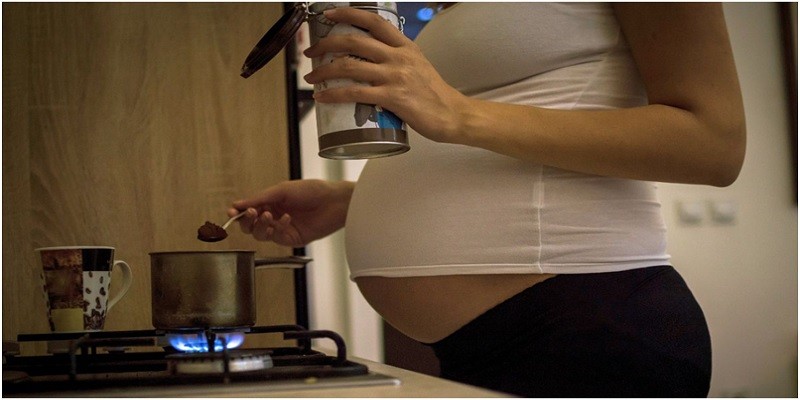Last Updated on July 28, 2023
Pregnancy is a beautiful and transformative journey in a woman’s life. During this time, expectant mothers become more conscious of their dietary choices and lifestyle to ensure the well-being of both themselves and their growing baby.
Coffee, with its caffeine content, often becomes a topic of concern and confusion for pregnant women.
In this article, we will explore safe coffee options for pregnant women, providing insights into caffeine intake during pregnancy and alternative beverages to satisfy their coffee cravings.
Understanding Caffeine and Pregnancy
Caffeine is a natural stimulant found in coffee, tea, chocolate, and certain soft drinks. It stimulates the central nervous system, providing a temporary boost in alertness and energy.
When consumed in moderation, caffeine can be a harmless part of one’s daily routine. However, during pregnancy, it takes on a different significance.
When a pregnant woman ingests caffeine, it crosses the placenta and reaches the developing baby. The baby’s underdeveloped metabolism makes it difficult for them to process caffeine efficiently, leading to prolonged exposure to the stimulant. As a result, some studies suggest that high caffeine intake during pregnancy may be linked to an increased risk of miscarriage, preterm birth, low birth weight, and developmental issues.
Safe Caffeine Intake during Pregnancy
The American College of Obstetricians and Gynecologists (ACOG) and other health organizations recommend that pregnant women limit their caffeine intake to 200-300 milligrams per day. This is approximately equivalent to one 12-ounce cup of brewed coffee.
It is essential to keep in mind that caffeine is not just present in coffee but also in various other beverages and foods. Pregnant women should consider all sources of caffeine when calculating their daily intake.
However, every woman’s body is different, and individual sensitivities to caffeine vary. Some women may find that even small amounts of caffeine affect them more during pregnancy.
Consequently, it is crucial for pregnant women to listen to their bodies and be mindful of how caffeine consumption makes them feel.
Decaffeinated Coffee: A Safe Option
For coffee-loving expectant mothers, the good news is that decaffeinated coffee is a safe option during pregnancy. Decaf coffee is made by removing most of the caffeine content from the coffee beans. It typically contains only a trace amount of caffeine, making it an excellent alternative for those looking to reduce their caffeine intake.
Decaffeinated coffee still provides the comforting aroma and taste of regular coffee without the stimulating effects of caffeine. Pregnant women can enjoy a warm cup of decaf coffee as a morning ritual or during social gatherings, knowing that they are making a safe choice for themselves and their babies.
Are you an expectant mother with a craving for Starbucks, but unsure which drinks are safe during pregnancy? Check out this carefully curated list of delightful and safe Starbucks drinks for pregnant that you can enjoy with confidence.
Herbal and Caffeine-Free Teas
For pregnant women seeking alternative warm beverages, herbal teas are a great option. Herbal teas are made from various plants, herbs, and fruits, and they are naturally caffeine-free.
There is a wide range of herbal teas available, each offering unique flavors and potential health benefits.
Some popular caffeine-free herbal teas for pregnant women include:
- Peppermint tea. Known for its soothing properties, peppermint tea can help with digestion and relieve nausea, which is common during pregnancy.
- Ginger tea. A natural remedy for morning sickness, ginger tea can ease an upset stomach and provide a comforting warmth.
- Chamomile tea. With its calming effects, chamomile tea promotes relaxation and may help pregnant women get a good night’s sleep.
- Rooibos tea. Also known as red tea, rooibos tea is caffeine-free and rich in antioxidants, making it a healthy choice during pregnancy.
Alternative Coffee Blends
For those who crave the taste of coffee without caffeine, various coffee blends offer decaffeinated or caffeine-reduced options. These blends combine roasted grains, nuts, and sometimes a small amount of coffee beans to create coffee-like flavors without the stimulating effects of caffeine.
Moms-to-be can explore alternative coffee blends that include ingredients like roasted barley, chicory, and carob, among others. These beverages are often referred to as “coffee substitutes” and are readily available in health food stores and online retailers.
Closing Thoughts
Pregnancy is a time of immense care and consideration for both the mother and the growing baby. When it comes to coffee consumption during pregnancy, moderation, and informed choices are key. Decaffeinated coffee, herbal teas, and alternative coffee blends provide safe and enjoyable options for pregnant women to satisfy their coffee cravings while adhering to recommended caffeine limits.
As always, pregnant women should consult with their healthcare providers about their individual caffeine tolerance and dietary preferences during pregnancy. By being mindful of their caffeine intake and exploring safe coffee alternatives, expectant mothers can continue to enjoy their coffee ritual with confidence and peace of mind throughout this special journey of pregnancy.

